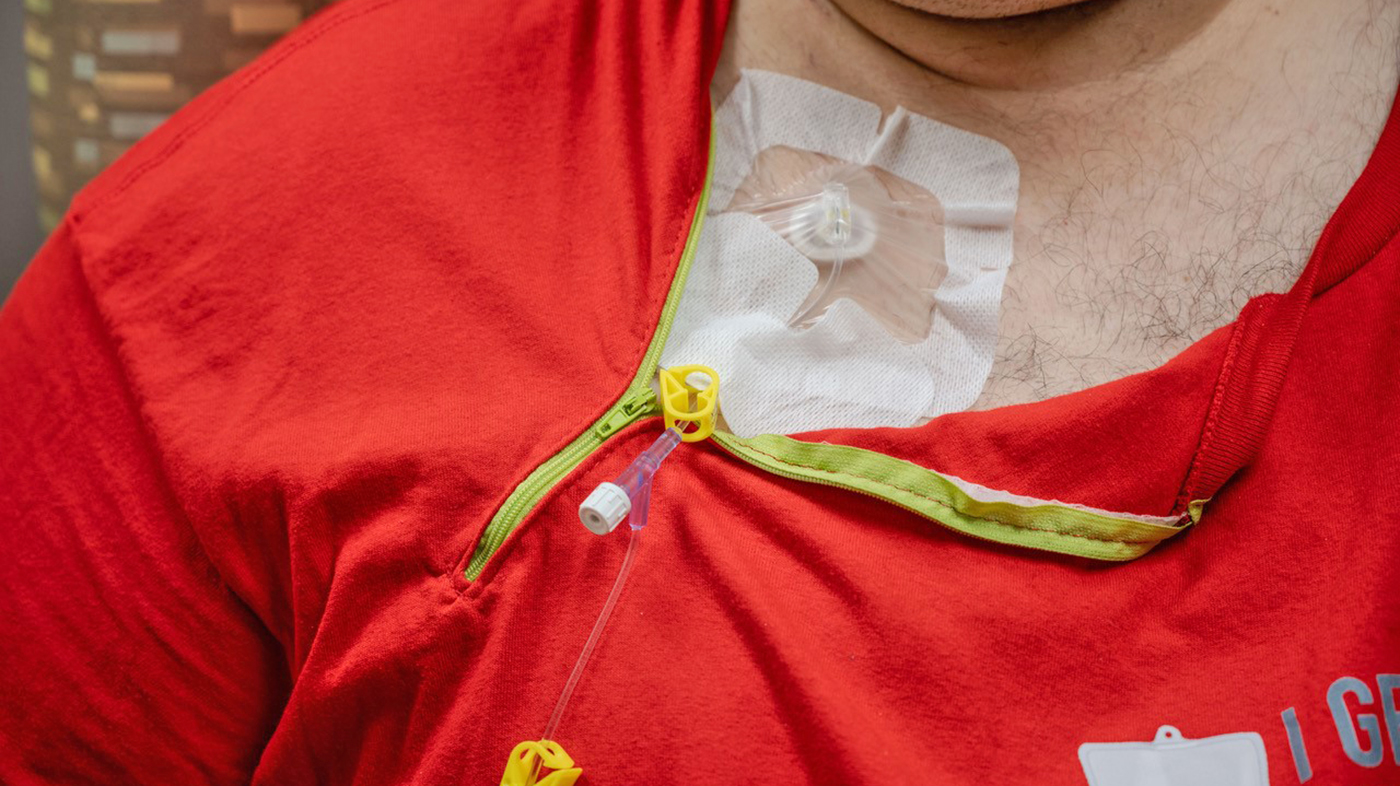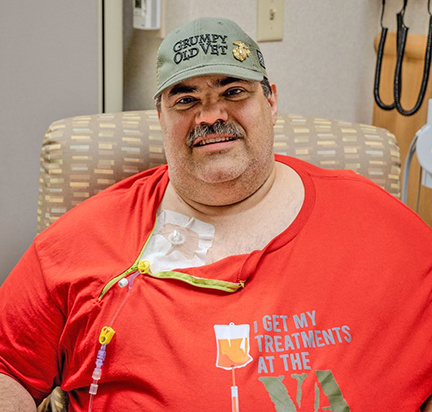William Bates spent six years in the Marine Corps as a field artillery radar operator. An Operation Desert Storm Veteran, his job required significant exposure to radiation and other contaminants.
“There was a sign on the radar unit that said stay back 700 feet when in operation. I used to laugh at that as it would be impossible to do our job if we actually did that,” Bates shared.
For Bates, this exposure was costly. After experiencing some symptoms, Bates was screened and subsequently diagnosed with stage four colon cancer.
Veterans like Bates are why VA developed the Promise to Address Comprehensive Toxics (PACT) Act, letting Veterans self-identify and get a comprehensive toxic exposure screening if they believe they were exposed to contaminants while serving.
The PACT Act aims to screen and test Veterans with exposures like Bates early, catching conditions like cancer while still preventable and treatable.
Bates is currently receiving treatment for his cancer at North Texas VA’s Hematology-Oncology clinic. Patients in this clinic often have implantable vascular access devices or ports for frequent infusions and blood draws. Accessing these ports through their shirts can be a source of frustration for patients.
‘I knew we had to come up with a plan.”
A team of dedicated nurses stepped in with a simple yet brilliant solution: port shirts with strategically placed zippers. The idea for port shirts came from Casilda Valles, a nurse in the clinic. “One of our Veterans made a hole in his shirt to make access easier. I knew we had to come up with a plan,” Valles said. “During the first week, the list of Veterans needing the shirt grew from a few to over 20. I didn’t know how I was going to sew that many shirts.”
But sew them she did, along with fellow registered nurses and team members, Mary David, Sinu Thomas, Alphonsa Shaju and Lucy Mugo. The team established a fund, purchased supplies and got to work.
“Casilda and Mary sewed over 40 port shirts during their off time,” said Mugo. “The rest of us handled the logistics.”
“I’m so committed to finding solutions like the port shirts.”
At a cost of $15 per shirt, the team raised almost $1,000 to make them for the Veterans they serve.
Cancer patients like Bates were surprised and humbled by the ingenuity and caring shown by the staff. “I used to have to yank my shirt collar down for treatment, which destroyed my clothes over time. Having someone make a special shirt to make my treatment easier was a great moment.”
“When we told the Veterans the shirts were free, their smiles and gratitude were undeniable,” said Valles.
Valles is no stranger to meeting obstacles head on and finding solutions. Originally from Puerto Rico, she came to the U.S. to work at VA, but due to a limited knowledge of English, she took a job as a nursing assistant in a retirement community so she could learn the language. She later reapplied to VA and has been with North Texas VA for 22 years.
“I know how hard it can be when things seem difficult. That’s why I’m so committed to finding solutions like the port shirts to make Veteran care easier and their lives better,” she added.
For Valles and this group of dedicated nurses, the port shirts represent a commitment to improving not just the care these Veterans receive, but also their overall quality of life during a challenging time. For cancer patients like Bates, the efforts and caring are proof that experiences and memories are earned one clinic, one experience at a time.
Topics in this story
More Stories
Pacific Islands VA has opened a new urgent care clinic inside the Daniel K. Akaka VA Clinic.
From one battle to the next, including four types of cancers, Eliot Winokur’s resilience remains unshaken.
As severe weather threatened Mississippi, local news warned of a dangerous outbreak of tornadoes. A VA nurse stepped up.







From this former Vietnam Veteran (1967-68) who has had Cancer three times, I wish to thank those wonderful and caring Nurses!
can you make one for my wife she is a size small.
Can you send me a xl shirt,so i can show to nurses and oncologist at the Miami,Fl. VA .That was a brillant idea and a job well done to all the nurses involved !!
I was on two types of Chemo for one year and i totally understand the shirt and port problem…i still have my port inbedded and just got off of Radiation.
May have to go back on Chemo,so that shirt would be awesome for all the vets taking Chemo !!
Thank you
Bob Woodall